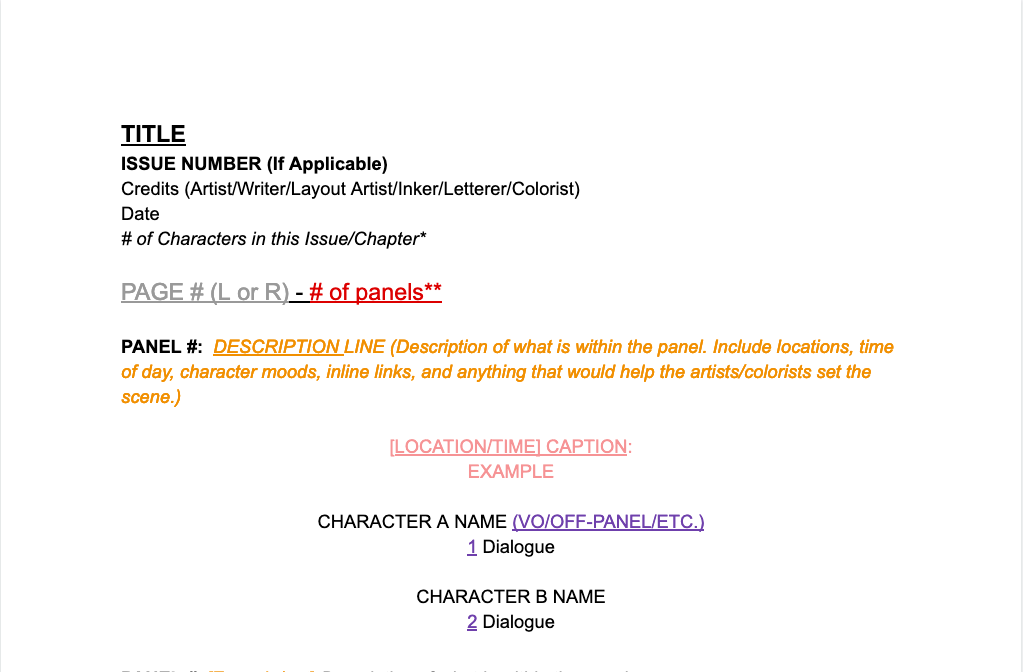Heart of the City cartoonist Steenz and Z2 Comics Senior Editor Camilla Zhang have built the “Standard Comic Script” (SCS) template. Its purpose is to demystify the industry, make life easier for professionals, and open doors for new creators.
“I've been saying that the comics industry needs a standardized script format for a very long time. Not only would it help aspiring writers to better understand the craft and mechanics of writing for the medium, but it would also make for a more effective way of communicating with other members of the creative team.”
~ David F. Walker, co-creator of Eisner and Ringo Award–winning Bitter Root (Image Comics)
The comics industry has never had a unified guideline on how to write a script. Both Steenz and Camilla had heard recurring complaints from within their community: that the lack of established standards had led to confusion, disorganization, and miscommunication. So they figured they would do something about it!
And what better place to begin than where many comics start? A lot of writers borrow from the film industry’s screenplay, the origins of which are as scattered as comics’ current state. If anything, however, the screenplay (essentially a standard template) has lent a certain legitimacy to the film industry. Steenz and Camilla hope that the SCS will do the same for comics.
The SCS was designed specifically for team communication and customization since comics—like film—is very often a collaborative medium. With that mindset, Steenz and Camilla reached out to fellow industry professionals like David F. Walker, Whitney Leopard, Ngozi Ukazu, and many others to put the SCS together. From there, they put it under peer review, balanced conflicting priorities between different roles, and combined everything into a short, comprehensive framework.
You might be wondering, why Steenz and Camilla and why May 2022? “Honestly, why not us?” Steenz said, adding, “Camilla is both a writer and an editor. She has a more well-rounded experience than most, having also worked on the brand and legal side of things at Marvel. Meanwhile, I’ve been a cartoonist, editor, comics teacher, and mentor for years.”
Camilla said, “Steenz and I are not THE authorities on comics. We just want to help our community. We did our due diligence to make sure the template was in a good place before launching it. That time just happens to be now. We also want to reiterate that the template is customizable based on how a creative team likes to work. For example, some letterers want dialogue numbered. Others despise it.”
Ultimately, any level of standardization can help an industry move forward and make it more accessible. So, feel free to use the Standard Comic Script, and its new Scrivener Template created by Brigitta Blair. Happy writing!

